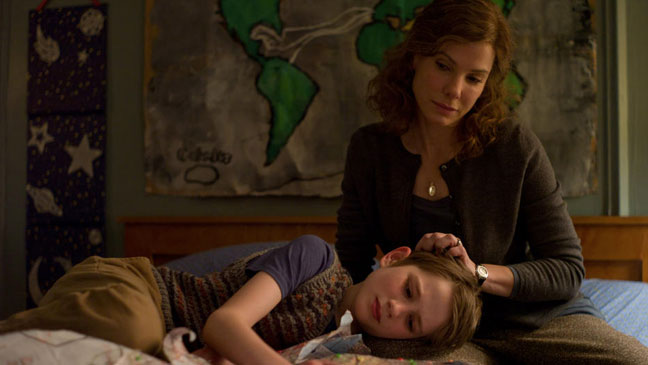Culture
“Extremely” misguided, but not terrible

Extremely Loud and Incredibly Close
dir. Stephen Daldry
Release Date: Jan 20, 12
- 1
- 2
- 3
- 4
- 5
- 6
- 7
- 8
- 9
- 10
Going into Extremely Loud and Incredibly Close, I had really low expectations, about as low as my excitement limbo bar can go. I’m a huge fan of the book, but I hate (hate) Stephen Daldry, who previously directed the plodding, pretentious The Reader. Hearing that he would be helming Loud was akin to someone informing you that they are going to punch you in the face two years before they punch you in the face. I have now been met with Stephen Daldry’s proverbial fist, and I have to say: it didn’t hurt that much. It was a little more like being very politely slapped.
Of course, Stephen Daldry is absolutely the wrong director for this material. Jonathan Safran Foer’s book is haunting and elegiac, which probably attracted Daldry, but it’s also tender and subtle, two words that are not in his vocabulary. Foer depicts the aftermath of 9/11 through the eyes of one very precocious nine-year-old named Oskar Schell, an amateur whiz kid who probably has Asperger’s. His father died in the towers, but in the novel, one only learns this towards the very end. His readers are usually smart enough to figure that out, but Foer is respectful enough to make it only a component of the novel rather than the raison d’etre. What the novel is really about is the misery of loving someone and the burden that losing that love can present.
The problem that an adaptation of the novel presents is how to make a book about 9/11 that isn’t all about 9/11, and how to keep the tragedy from spilling over into the foreground. This is a question that Daldry doesn’t even try to answer, and if you were to take a shot every time someone said “9/11,” you wouldn’t be able to walk out of the theatre after two hours. With the help of a characteristically overwrought score and his usual kitchen-sink dramatics, Daldry means to rile you up and emotionally manipulate you.
What this does is make the movie so different from the novel in tone as to make the film a completely separate entity. Both the novel and the film tell the story of Oskar (Thomas Horn), who finds a key that his dead father left behind in an envelope with the word “Black” on it. He grabs a phonebook and tracks down all the Blacks in New York and begins schlepping around the city to find the lock that the key fits. Although a kid walking all over New York unsupervised is a difficult conceit to stomach, Foer depicts Oskar’s mission out of a modernist fairy tale, and his ornate prose transports you into that reality, but all we see in Daldry’s visually bland adaptation is reality. Daldry’s New York has neither the poetic grittiness of Spike Lee or the black-and-white fantasy of Woody Allen; his just looks plain and dirty, and it exposes the cracks in Foer’s story.
Last year, Martin Scorsese attacked these problems beautifully with his Hugo, another film about a boy using a key to keep his father alive, and his film does not sacrifice poetry for Oscar-baiting tear-jerking sentiment. Scorsese didn’t need a wildly miscast Sandra Bullock and an on-autopilot Tom Hanks to sell the story. It worked because Scorsese deeply believed in the message; he made the poetry personal. In Daldry’s case, it’s like he doesn’t trust us to simply connect to the story, which sucks because the movie actually works when the elegant power of Foer’s novel comes through.
What makes this movie better than it probably should have been are the film’s two central performances, from first-timer Horn and veteran Max von Sydow as a mute stranger living with Oskar’s grandmother. In particular, Horn’s performance should go down as one of the great child performances in the history of film, and if the film around him were better, he would have landed an Oscar nomination. Horn won Kids’ Week on Jeopardy in 2010, and I can’t tell if he’s just a lot like his character or a complete natural, but I can’t wait to see what becomes of him as an actor. If he can save this movie, he can do anything.